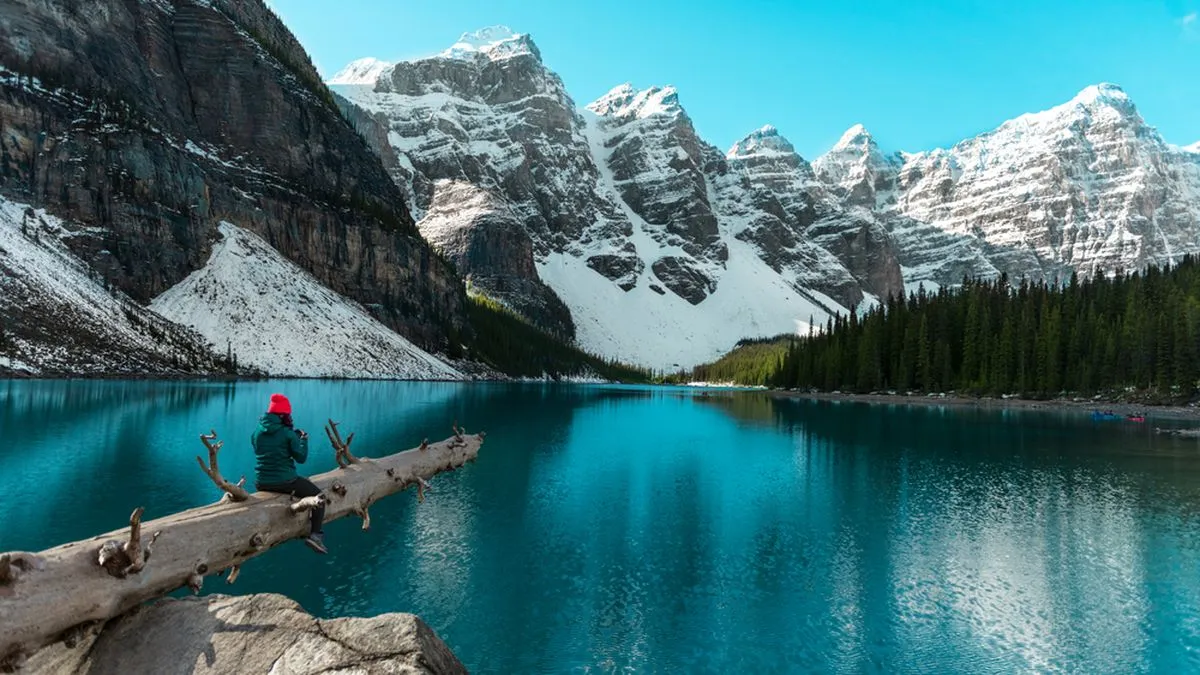10 facts you didn't know about Canada
Tuesday 3 October 2023

Canada is a country in North America that is synonymous with wildlife, awe-inspiring lakes and maple syrup, but it has so much more to offer those choosing to explore the mighty lands. A location that is on almost everyone’s travel bucket list, Canada is a breathtaking destination, especially when on a cruise, as you’ll get to see the jaw-dropping scenery from a whole new perspective on the water. If you’re looking to book a future cruise to Canada on Ambience, then make sure you keep reading as we’re about to tell you ten interesting facts about this wonderful country that may surprise you.
READ MORE: What's the Best Travel Movie of All Time?
Canada has the longest coastline in the world
Canada, as a country, has the longest coastline in the world, measuring over 200,000 km. The coastline is surrounded by three oceans and makes up almost 57% of the world’s total coastline.
We spoke to Laura at the blog What Laura Did Next and asked her for her favourite fact about Canada. She recently learnt about the length of Canada's coastline, commenting: “One of the most surprising facts I learnt about Canada before moving there for a few years was that it has the longest coastline in the world at a whopping 151,000 miles. This means there are tons of beautiful beaches to explore, all the way from the west on Vancouver Island on the Pacific Ocean to the choppy Atlantic coastline over in the east in Newfoundland.
“If you add any Canadian beach to your list, make it Chesterman Beach in Tofino, Vancouver Island. Although you might not think of Canada as a surfing destination, this is the perfect spot, and even Prime Minister Justin Trudeau loves to surf here. British Columbia’s stunning Sunshine Coast is also a prime spot for beautiful beaches, and it really lives up to its name.”
Canada's coastline is one of the main draws for tourists and is a wonderful part of the country to explore. Spend a day walking to the rugged coastline and watch for whales as you go, spend the day paddling in a kayak and uncovering hidden coves and caves or visit quaint fishing villages that look like something out of a movie.
There are two different languages in Canada
The vast majority of Canada is English-speaking, but this varies from province to province, with French also being commonly spoken in certain areas, but there are also over 70 aboriginal languages still spoken in areas that have existed for hundreds of years.
With two main languages, it can be hard to know what to expect, but most tourist locations will speak or at least understand English, so you don’t need to worry about swatting up on your French as you go. But, the further away from the tourist hot spots, you might start to hear different languages more frequently.
Canada’s national animal is actually a beaver
You may be surprised to hear that the national animal of Canada is the beaver. The beaver became the national animal of Canada in 1975, and the connection to the country dates back hundreds of years due to the link to the fur trade that the animal once had.
Beavers are the largest rodent in the country and can weigh up to 60 pounds and measure over three feet long. They spend their days asleep and are known for their dam-building and large teeth, which they use to fell trees.
The coldest ever recorded temperature in Canada is -63°C
The temperature and weather in Canada are unlike any other country in the world and, due to its size, can vary drastically. Average temperatures on the east and west coast sit at about 20°c but temperatures can drop to huge minus numbers in the colder months of the year.
However, the coldest-ever recorded temperature in Canada is -63°c in Snag, which is in Yukon which sits between the North-western Territories and Alaska.
Remove its lakes, and Canada would only be the fourth-largest country in the world

Canada is the second-largest country in the world, but if you removed its lakes, it would only be the fourth-largest country in the world. Canada is notorious for its lakes, and these large masses of water make up 9% of the area of the country. Lake Louise, Moraine Lake and Lake Ontario are some of the most popular lakes and are often visited by those looking to enjoy water sports and hiking while visiting Canada.
Hockey is the national sport of Canada
According to the National Sports of Canada Act, there are two national sports in Canada: Hockey and Lacrosse. Hockey is a huge sport in Canada and is enjoyed much like football and rugby in the UK. Invented in the 1800’s, hockey is often played in winter in Canada, and the players are treated like real celebrities in the country.
One of the longest highways in the world is in Canada
This fact might not come as a surprise, seeing as the country is so large, but Canada is home to the world's longest national road, which is called the Trans-Canada Highway. The road is 4,860 miles long and stretches between the East and West coasts and between the Pacific and Atlantic coasts. The highway stretches from St John to Victoria and connects the whole of Canada.
The maple leaf has been a symbol of Canada since the 1800s
Most widely associated with Canada due to it being the main feature of their flag, the maple leaf has actually been an iconic symbol of Canada since the 19th century when the leaf itself emerged as the symbol of national identity. The maple leaf was only added to the Canadian flag in 1965 and was made official by a proclamation from Queen Elizabeth II.
Canada is the second-largest country in the world
We have mentioned it above, but Canada is the second largest country in the world, sitting behind Russia, which is the largest. Canada covers 9,984,670 square kilometres, and for a country so large, the population is actually very low due to many parts of Canada being off-grid to cars and transport and left to wildlife. The population of Canada is only 38.25 million.
Canada is so big that it occupies six time zones
Canada is so large that it covers six time zones, and the time zones are Pacific, Mountain, Central, Eastern, Atlantic, and Newfoundland. So, if you’re travelling around Canada, don’t be surprised if the time zone changes.
Now you know all there is to about Canada, why not explore our range of cruises that take you to the likes of Canada? If Canada is a little too far, but you want to enjoy similar sights, then why not consider a Norwegian Fjords Cruise or a Norway cruise? For more articles and guides like this, make sure you check out our blog.


